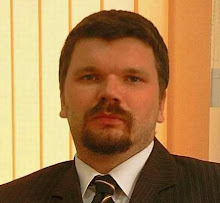
Trough a recent consultancy assignment in the Middle East (Gulf region), I've managed to obtain some useful insights into the ERP & Enterprise Solutions / IT Consultancy market of this region.
Regardless of cultural, social and economical differences, the business environment and the "business infrastructure" in the GCC (focusing on UAE and Saudi-Arabia) is fairly similar to western type environments.
Also, the headcount of western educated and highly qualified "Expats" (foreign citizens living as residents in the GCC ) increases the level of transferred knowledge, the "Know-How" is being transferred on a very accelerated path.
The emerging market:
Anyone will associate Middle East (from the economic development's perspective) with oil and OPEC. Being the worlds second largest Oil exporter, Saudi Arabia and other GCC countries develop their economy based on their income -mainly crude oil,
Saudi Arabia plans to invest over 400 bn USD in infrastructure development, in order to assure logistical communications and to optimize the movement of goods and services.
Dubai is a fair example for "How to manage when the oil runs out". Having major investments in infrastructure -highways, water, electricity, Dubai also started building the "Business center of the future" .
All the recently built 80-120 floor tall sky-scrapers are meant to replace the desert-view with a modern Metropolis. By becoming a major international business -hub (node), Dubai will increase his income and recover from the 2008-2009 crisis. Business and shopping tourism is also a considerable source for income for the Emirate of Dubai.
All this investments will require a strong technical support, an investment in the area of IT, in order to assure the proper management, controlling, reporting and maintainability for all the delivered investments.
Any infrastructure/logistics investment without the proper Monitoring system, without an ERP system, without an efficient project management tool will always carry a major risk of failure.
Most GCC country executives are aware of the necessity of the IT solutions, and for this reason,
major American market players like ORACLE, MICROSOFT are already present in the GCC region, having a multi-billion market share here.
Also ,major European players - German SAP is starting to brake trough successfully in this market.
As for the future (even if oil runs out in 20-30 years), if GCC countries will continue their present strategy of developing their business infrastructure, the business society and the organizational environment of 2030-2040 will reach his maturity, being able to offer an alternative for the "traditional" oil business
The content of this posting and the related comments are property of Mr. Racz Sandor


